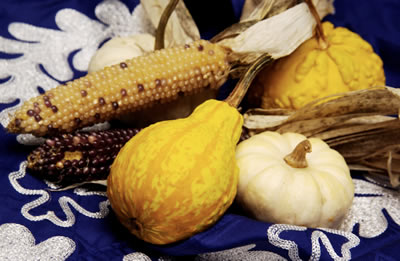|
Greetings!
 From all of us at BioWorks, have a wonderful Thanksgiving! Take time to enjoy your friends and family. Here's to a bountiful season for all. From all of us at BioWorks, have a wonderful Thanksgiving! Take time to enjoy your friends and family. Here's to a bountiful season for all.
|
|
RootShield or RootShield PLUS+
Which product should I use?
By Scott Armstrong, Central Reg. Technical Services Manager, and Rich Reineke, Great Lakes Reg. Technical Services Manager.
RootShield™ is regarded by many growers as the standard in the industry for the preventative control of soilborne Rhizoctonia, Pythium, Fusarium, Cylindrocladium, and Thielaviopsisplant diseases. Despite RootShield's effectiveness against these diseases, it does not provide consistent control of soilborne Phytophthora diseases and is less effective during hot summer production against Pythium aphanidermatum. To better meet the needs of growers, BioWorks introduced RootShield PLUS in early 2012. Not only does RootShield PLUS offer growers complete control of the standard RootShield, it also provides additional protection against soilborne diseases caused by Phytophthora species while at the same time providing enhanced protection against Pythium aphanidermatum. Now with both RootShield and RootShield PLUS available, many growers are asking, "Which product should I use?" The original RootShield WP and Granular formulations remain very effective in preventing Rhizoctonia, Pythium, Fusarium, Cylindrodium, and Thielaviposis diseases. We believe that growers who have a history with these specific diseases and are looking for preventative control should consider using or continue to use RootShield WP or Granules. If growers see or expect that they will have additional problems with soilborne Phytophthora or hot-season Pythium diseases, then they should consider using RootShield PLUS WP or Granules to control these diseases. Growers may want to consider using both products with their use dependant on the specific crop and the time of the year. Some examples of when a grower should consider moving to RootShield PLUS would be the summer production of poinsettias, garden mums, and pansies, as well as spring production of vinca, osteospermum, and cyclamen. Figures 1 and 2 below demonstrate the efficacy of RootShield PLUS against Phytophthora and hot-season Pythium root rot diseases in third party greenhouse trials. Additional efficacy tests can be obtained by clicking here.
 | |
Fig. 1
|
 | |
Fig. 2
|
During the development of RootShield PLUS, BioWorks® used feedback from our own research, trials by growers, and trials conducted by universities and independent researchers to develop formulations that provide the most consistent efficacy. We discovered that it is necessary to use higher rates of RootShield PLUS than those of standard RootShield to control Phytophthora and hot-season Pythium due to the fact that these are very difficult diseases to prevent. BioWorks recommends to growers that unless they believe that their crops will have pressure from either soilborne Phytophthora or hot-season Pythium diseases, the original RootShield WP or Granules makes the most sense to use. If a grower expects that Phytophthora or hot-season Pythium will be a problem, then the best choice is to use RootShield PLUS.
Our technical experts are available to help you determine which product is best for you. Contact your Regional Technical Services Manager, or click here.
|
Who Regulates Crop Inputs?
By Jamie Aggas, Regulatory and Technical Services Coordinator
BioWorks takes product registrations very seriously and makes every effort to comply with federal and state authorities in order to ensure your safety when using our products. There are several organizations responsible for regulating crop inputs. Click here for full article explaining the various entities and how they play a part in product registrations and certifications.
|